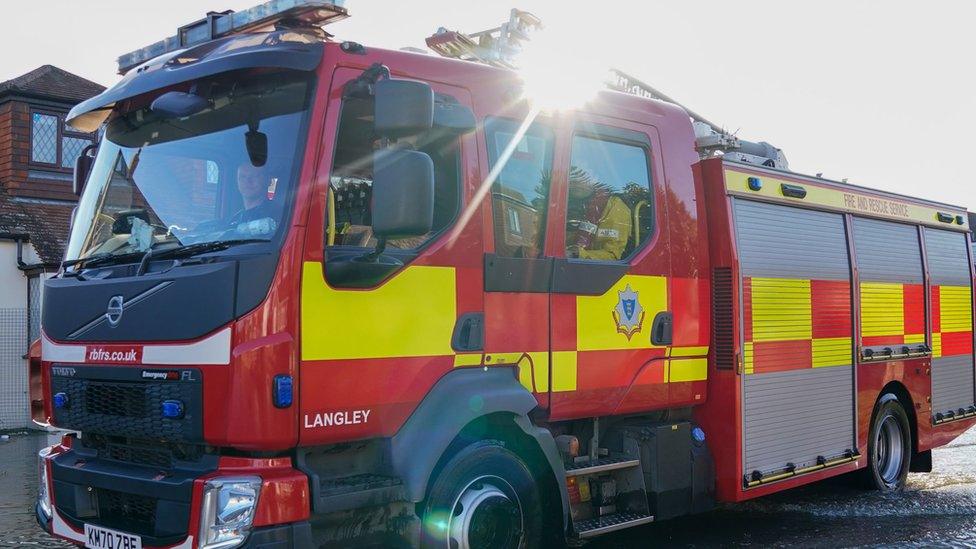Berkshire fire service says 99% of automatic alarm calls false
- Published

Royal Berkshire Fire and Rescue Service said a public consultation into the plans will begin in March
More than 99% of alerts received from automatic fire alarms are false, a fire and rescue service has said.
Royal Berkshire Fire and Rescue Service said that an annual 2,300 calls from automatic alarms create significant disruption.
The service has now drawn up plans to change the way crews respond to these alerts.
A public consultation into the proposals will begin in March.
Currently, the service sends a fire engine to all automatic fire alarm notifications in buildings that are high-risk, occupied buildings.
Alarms in lower risk buildings are challenged by a phone call, with the service currently challenging around a quarter of automatic calls.
The fire service said by changing the way it responds to incidents, it could "reduce disruption" and "provide more time" for activities which would "have greater benefits for our communities and across the service".
It added that the focus of the proposals were "solely on reducing risk by minimising disruption to those key activities we know will provide the most benefit in keeping people safe".
False alarms account for 45% of all incidents, according to the fire service, with 99.3% of automatic fire alarm notifications requiring no action by the service.
The new proposals only cover the response to automatic fire alarms, and would not change emergency response to 999 calls.

Follow BBC South on Facebook, external, X, external, or Instagram, external. Send your story ideas to south.newsonline@bbc.co.uk or via WhatsApp on 0808 100 2240.